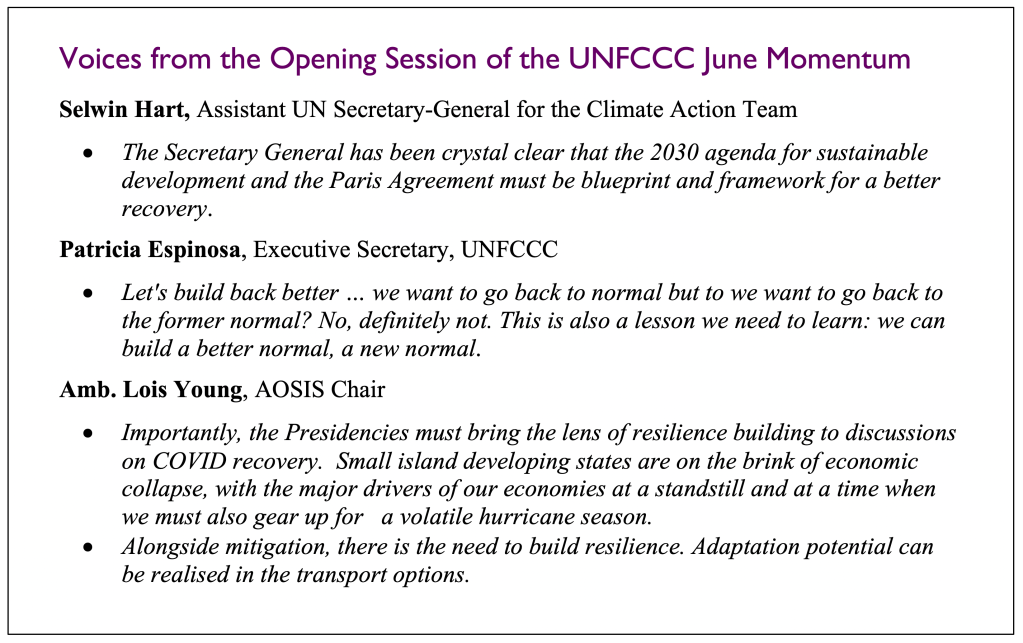Ensuring more sustainable flying after the coronavirus pandemic
According to a recent Lonely Planet article, “the International Air Transport Association (IATA) has released new analysis showing that the damage to air travel from COVID-19 will extend into 2023, with long-haul travel being the most severely impacted”, or as the headline said:

This is bad news for the airline industry, but if we want to ensure it is not worse news for the planet, we have to make sure that post-pandemic flying does not return to what it was, but to a better, more sustainable ‘new normal’. By helping companies to align their inevitable air travel with the UN Sustainable Development Goals (SDGs), this is precisely what the CAPS programme intends to do.

In trying to get to a more sustainable way of air travel, and indeed air transport in general, it is important to keep in mind the broader picture, beyond carbon footprints. A recent article looking at “Five ways to make your holidays more sustainable“, for example, suggest that one should ‘travel slowly’, i.e. “travel like Greta to minimise your environmental impact”, and ‘eat like a local’, i.e. “minimise your food miles when you travel.” The problem with these suggestions is that they would likely lead to collateral impacts that could devastate many poor and vulnerable countries who are least responsible for climate change.
It has been argued (“Food Miles or Poverty Eradication?“, October 2007) that we have “The moral duty to eat African strawberries at Christmas” and the argument still stands: the export of fresh agricultural produce is the only way in which many, if not most of the globally poorest and most vulnerable countries and communities can participate in the global economy.
It is also true that many small island developing countries are reliant on long-haul tourism, and not everyone has the resources, financial or time, to travel long-haul slowly like Greta. What we need are ways in which we can ensure long-haul air transport becomes sustainable, starting with the ICAO Carbon Offsetting and Reduction Scheme for International Aviation (CORSIA) combined with donations to the Adaptation Fund of the Paris Agreement, as proposed under the CAPS initiative, eventually leading to less polluting modes of long-haul air transport, such as hydrogen planes and hybrid airships already being developed and used, emitting much less (if anything) per cargo ton than traditional air haulage and travel.
Taking our inspiration from the early 20th century could thus be useful. Going back to stone age local solutions is not.
Why corporate SDG alignment?
The SDGs have the potential to generate US$12 trillion in business savings and revenue across four sectors by 2030: energy, cities, food and agriculture, and health and well-being, according to a report by the Business & Sustainable Development Commission (January 2017). About 380 million new jobs linked to these four sectors could be created in the next ten or fifteen years due to alignment of business strategy to the SDGs.
As investors concern about companies’ sustainability risk profile is increasing, so is their understanding of sustainability-related business opportunities. In the Netherlands, the financial sector backs the SDGs: 18 financial institutions, representing approximately EUR 2,900 billion AUM, are investing in the SDG-aligned action collaboratively. Two of the organizations involved have developed a standard methodology to identify investment opportunities linked to 13 SDGs, along with supporting other institutional investors.
78 percent of customers are more likely to buy the goods and services of companies that have signed up to the SDGs according to research by PwC. This was echoed in our own research, which showed that “engaging with the SDGs could be great marketing for the company — it could open doors and partnerships with other sectors that may not be obvious.”
In its 2017 Better Business – Better World report, the Business and Sustainable Development Commission further identifies a number of reasons for businesses to lead on sustainable development, among them the need for businesses to ‘rebuild the social contract’:
‘Many see business as reneging on its social contract. Business leaders can regain society’s trust and secure their licence to operate by working with governments, consumers, workers and civil society to achieve the whole range of Global Goals.’
The WBCSD CEO Guide to the SDGs echoes this need for regaining trust to ‘forge a new and improved social contract’, and also lists the ability ‘to consolidate a strong license to operate and to differentiate themselves from competitors’.
Further, our interviews highlighted the opportunity to attract and retain talent tied to SDG action: ‘Research shows that increasingly millennials want to work in companies that are more socially and environmentally friendly/driven. As such, engaging with the SDGs in a meaningful way may prove effective for recruiting and keeping talent.’
Finally, our interviews suggested that SDG action could be an important addition to policy engagement efforts, specifically, it “could even increase the influence of the company in policy circles, which could be beneficial to it in the longer-term.”
The power of corporate SDG alignment via CAPS
The CAPS Programme proposes to address the negative climate change impacts associated to a company’s air travel through adaptation measures, as supported by the Adaptation Fund.
CAPS propagates donations in proportion to a small share (1%) of a company’s corporate air travel budget to the Adaptation Fund of the Paris Agreement as a means of aligning operations with the SDGs and of managing certain reputational risks associated with air travel.
It is aimed primarily at companies that seek to align with the UN Sustainable Development Goals (SDGs) as well as companies who wish to manage reputational risk associated with air travel.
Given the AF’s global developing country reach and proven SDG alignment of its activities CAPS provides a tool for aligning corporate air travel with the SDGs. This is a breakthrough initiative that connects corporate operations with adaptation projects directly via the most reliable, global, and effective platform for doing so.
In this framework, corporate contributions to the AF provide a way to contribute to the funding of concrete adaptation projects in the developing world that goes beyond climate-proofing corporate operations, in the same way that ‘net-zero’ initiatives can promote decarbonisation measures that do not necessarily come with cost savings.
SDG 13, related to climate change and its impacts, is a high priority goal for companies. SDG 13.1 in particular aims to “strengthen resilience and adaptive capacity to climate-related hazards and natural disasters in all countries.” CAPS provides a tool to align operations, specifically air travel, with this goal by raising finance for adaptation projects via the Adaptation Fund.
Hundreds of companies have already taken steps to align their business with SDGs. For many of these companies, according to a survey by WBCSD (2018), the absence of clear ways to monitor and communicate progress is a barrier to implementing measures to align with the Goals. “CAPS would offer a simple way to monitor and communicate about goal 13.1 via the Adaptation Fund, which in time could offer a locus for corporate engagement on its website.
Even as companies reduce their air travel, face-to-face meetings will always be a crucial element to doing business. This minimum of necessary corporate air travel may nevertheless be seen to contribute to emissions in a way that is contrary to ambitious climate action and to SDG alignment. Air travel hence also becomes risky from a reputational point of view, especially given the increase in scrutiny of public climate pledges by companies and rapidly growing social movements, such as ‘Flight Shame.’
Via a dedicated communication platform on the Adaptation Fund’s website, companies who participate in CAPS can demonstrate their contribution to adaptation efforts and mitigate their reputational risk by making their climate ambition more consistent with their operations.
This can be either complementary to or in lieu of carbon offsetting, which is not seen by all to mitigate reputational risk.

Operationalizing CAPS
Oxford Climate Policy and BVRio are currently analysing how the CAPS concept could be operationalised as a partnership between the Adaptation Fund and a Network Partner.
The Adaptation Fund as key Executing Partner
The Adaptation Fund provides funding for projects that protect the livelihoods of the world’s poorest and most vulnerable people against the adverse impacts of climate change. Its activities closely align to the SDGs, and in particular SDG13.1 (‘Enhanced adaptive capacity, strengthened resilience, and reduced vulnerability of people, livelihoods and ecosystems to climate change’). Through an emphasis on action, innovation, and learning, its activities seek to engage four cross-cutting themes:
- Engaging, empowering and benefitting the most vulnerable communities and social groups, including women, youth and marginalized communities (SDG1, 5, 10, 13)
- Advancing gender equality and the empowerment of women and girls in adaptation planning (SDG5)
- Strengthening long term institutional and technical capacity for effective adaptation in developing countries, including through North-South, South-South and triangular cooperation (SDG13b, 16, 17)
- Building complementarity and coherence with other climate finance delivery channels (SDG13a, 17)
It has a truly global reach, and therefore a genuinely global positive social impact. The Fund is:
- Effective. Having allocated over US$532 million to projects with 5.8 million beneficiaries throughout the developing world, it has a proven track record and was independently evaluated as “an effective institution capable of achieving its ambitious objective … good value for money.”
- Safe. All Adaptation Fund projects must satisfy strong environmental and social standards, including protecting human rights, empowering marginalized and vulnerable groups, fostering biodiversity conservation, protection of natural habitats and land and soil conservation
- Efficient. Having its own online crowdfunding engine and tried and tested selection processes for quality projects to be funded, the Adaptation Fund provides a very simple ‘one-click’ solution for proven CSR climate action.
A partner organization to engage business
In order for CAPS to work, the initiative will need to bring on board a network partner that has the ability to mobilize the envisaged targets, namely corporates with a global reach that have signed up to align their activities with the UN SDGs.
The idea is to approach the UN Global Compact, the world’s largest corporate sustainability initiative, supporting companies to “take strategic actions to advance broader societal goals, such as the UN Sustainable Development Goals.”
The UNGC calls on its member companies to “commit to responsible climate adaptation” and, in particular, to do more by “acting now to respond to immediate climate impacts and to support the most vulnerable members of society, [and by] urgently increasing the availability of adaptation and resilience finance” as demanded in the recent Call to Action by the Adaptation and Resilience Coalition. CAPS provides a strong and innovative tool for companies to follow this call.
Contact: director@oxfordclimatepolicy.org
CAPS Brochure

